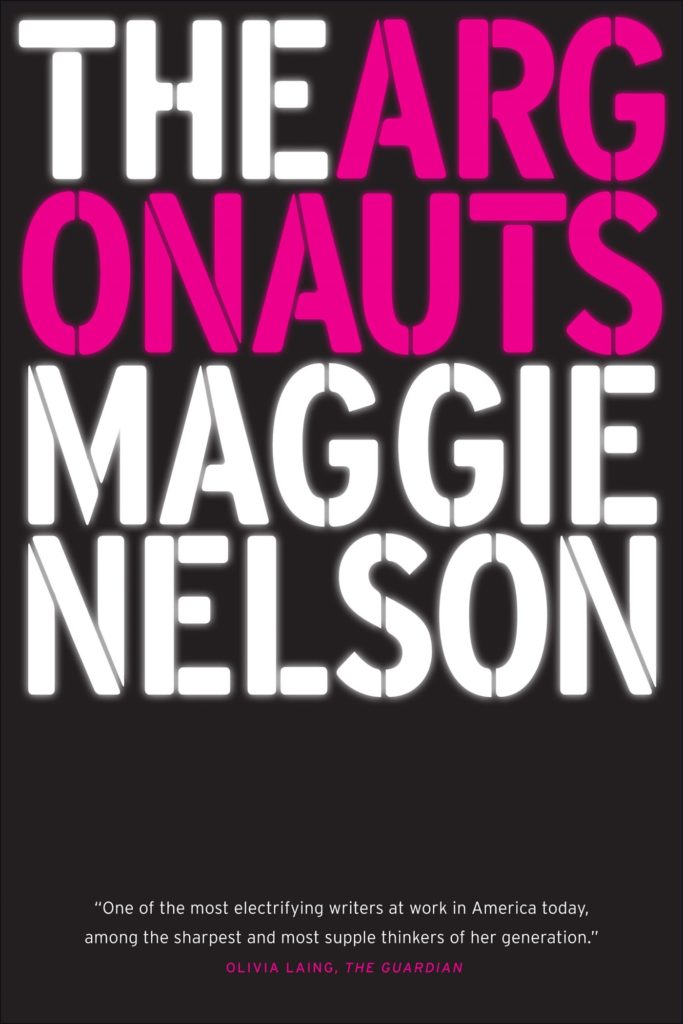The Argonauts
By Maggie Nelson

The Argonauts is “a genre-bending memoir, a work of ‘auto-theory’ offering fresh, fierce, and timely thinking about desire, identity, and the limitations and possibilities of love and language.”
I like this term, “auto-theory”; I’m not sure what it means, formally, but it evokes a sort of smart self-inquiry, memoir that engages with big ideas.
It’s astoundingly critically acclaimed, though crowd wisdom is more mixed. A mashup of quotations from laudatory reviews follow:
It is a “rigorous exploration of sexuality, gender, and ‘family’.”
It is “lushly poetic”; it “slays entrenched notions” and “suggests a new path for the memoir.”
It is “gloriously unpredictable”; it “contains multitudes”; it is “a category of writing entirely new…”
Nelson is a “poet, critic, and nonfiction author”; it seems this book merges all three genres and more. About her gender fluid partner Harry and their relationship, it is a “shatteringly intelligent meditation on what it means not to accept binaries but to improvise an individual life that says, without fear, yes, and.”
Chapterless, The Argonauts’ 140 pages are a procession of paragraphs short and long. In the margins, the text is annotated with names and sources — brief traces of longer footnotes in the wings.
